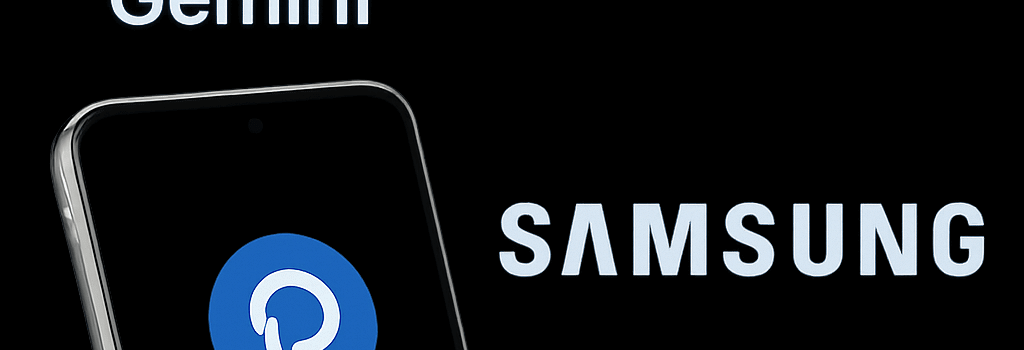Samsung Considers Perplexity AI for Galaxy S26, Ditches Google Gemini

A Perplexing Shift in Mobile AI Partnerships
Every smartphone OEM is racing to embed advanced AI into flagship devices. Samsung, which initially backed Google’s Gemini AI to replace its Bixby assistant, is reportedly weighing a pivot to Perplexity for its upcoming Galaxy S26 series. This strategic realignment aims to diversify AI partnerships and reduce reliance on a single provider.
Perplexity, a search-focused generative AI platform leveraging large language models (LLMs) similar to ChatGPT and Gemini, distinguishes itself through transparent citation of sources and an emphasis on up-to-date web data. During the recent U.S. antitrust trial, Perplexity exec Dmitry Shevelenko revealed Google had blocked Motorola from preinstalling Perplexity on its 2024 handsets. However, Motorola successfully launched Perplexity integration on this year’s Razr foldables, marking a breakthrough for the startup.
Technical Architecture of Perplexity Integration
Under the proposed agreement, Samsung plans to embed Perplexity’s AI engine directly into its browser and Bixby ecosystem, with potential for Perplexity to function as the default voice assistant. Key technical considerations include:
- Edge and Cloud Inference: Samsung may split inference tasks between on-device NPU (Neural Processing Unit) found in the Exynos 2400 or Snapdragon X5 Gen 3 SoCs and Perplexity’s cloud clusters powered by NVIDIA H100 GPUs.
- Latency and Throughput: To maintain sub-200ms response times, Perplexity could deploy model quantization techniques (e.g., INT8 precision) on-device, falling back to cloud APIs for complex queries exceeding 10,000 tokens.
- Data Security: End-to-end encryption protocols will safeguard user queries, while on-device caching of embeddings allows offline assistance for routine tasks like calendar scheduling.
Industry analyst Dr. Jane Lang of TechFront Research notes,
“This hybrid inference model offers the best balance between speed, accuracy, and privacy, essential for premium smartphones.”
User Experience and UX Challenges
While integrating multiple AI models boosts functionality, it also risks cluttering the UI. Motorola’s Razr saw conflicts among Meta’s LLaMA, Microsoft’s Turing, Google Gemini, and Perplexity, leading to inconsistent answers and duplicate suggestions.
- Unified AI Hub: Samsung’s One UI 7.0 may introduce a centralized AI menu, streamlining access to diverse agents and ensuring seamless fallback when one model fails to resolve a query.
- Contextual Switching: Bixby routines could intelligently route tasks—translating text via Google Translate API, performing research with Perplexity, and drafting emails with Gemini—based on user intent.
Industry Implications and Future Directions
Google’s antitrust defeat forced it to relax exclusivity in OEM deals, opening the door for competitors. Samsung’s potential shift underscores growing fragmentation in the mobile AI landscape, where device makers curate multi-vendor ecosystems to avoid vendor lock-in.
Perplexity, fresh off a $100 million Series B funding round, aims to expand its presence beyond search into vertical AI assistants for finance, healthcare, and IoT. Samsung’s endorsement could accelerate Perplexity’s roadmap for specialized “small models” optimized at 1–2B parameters for on-device tasks.
Emerging AI Standards and Regulations
Regulatory bodies in the EU and U.S. are drafting guidelines for AI transparency, safety, and data governance. Samsung’s collaboration with Perplexity necessitates compliance with evolving frameworks like the EU AI Act, which mandates clear user disclosure when content is AI-generated.
Looking Ahead: Multi-Agent AI on Smartphones
Samsung’s R&D has reportedly filed patents for agentic systems—autonomous software agents that orchestrate workflows across calendar, email, and IoT devices. Coupled with Samsung’s Secure Element, these systems could securely manage digital identities and personal data, heralding the next wave of mobile AI.
Conclusion
If finalized, Samsung’s partnership with Perplexity for the Galaxy S26 would mark a significant realignment in the smartphone AI arena, challenging Google’s dominance and paving the way for a more heterogeneous AI ecosystem on mobile devices.